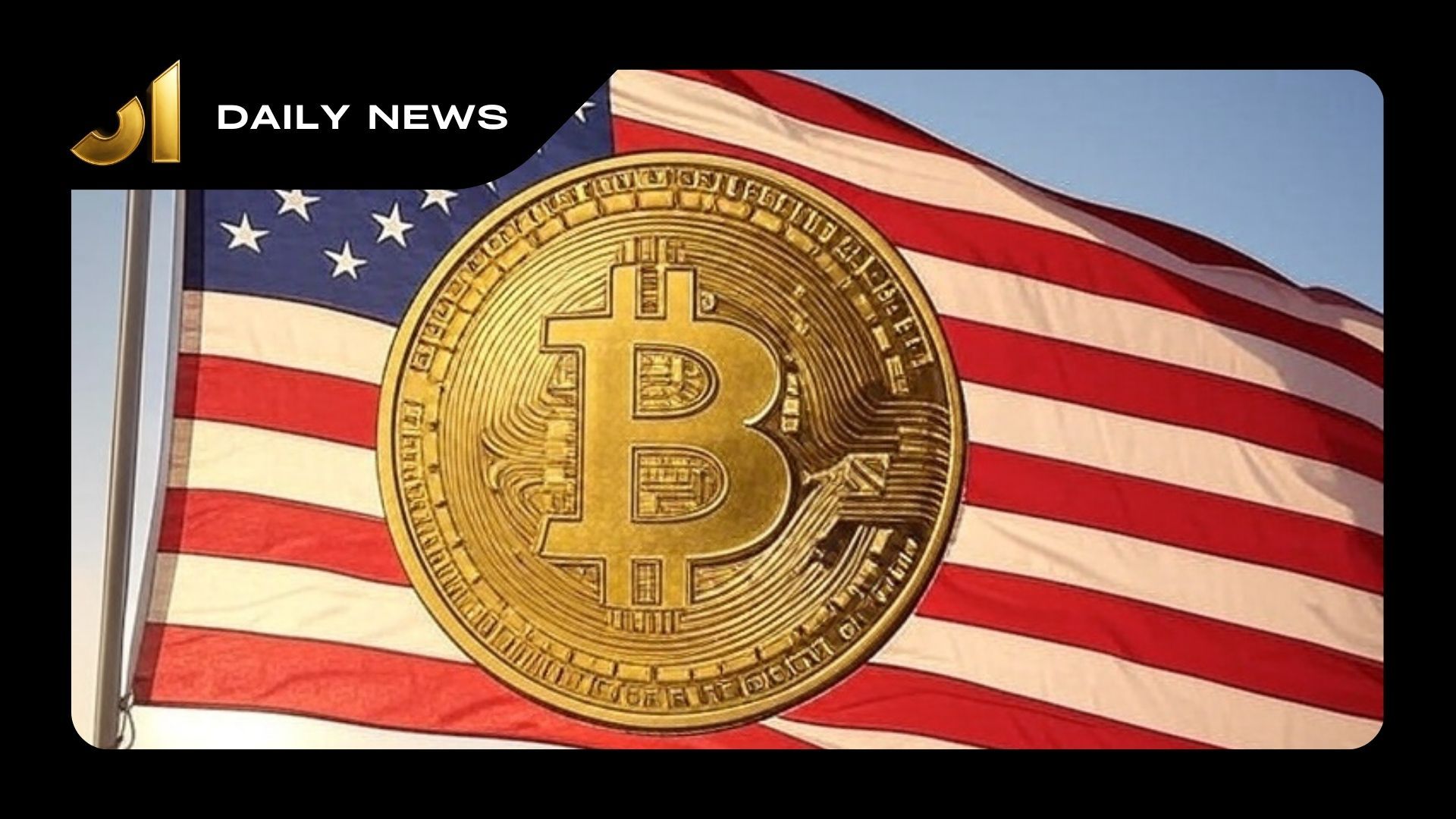Trump-Backed American Bitcoin Targets Nasdaq Listing as CFTC Opens U.S. Market Pathway for Foreign Crypto Exchanges
U.S. Government Brings GDP Data Onchain With Pyth, Nvidia Revenue Surges 56% Amid China Chip Tensions, Trump-Backed American Bitcoin Eyes Nasdaq Listing, CFTC Opens Door for Foreign and Crypto Exchanges

Because Bitcoin
August 29, 2025
Trump-Backed American Bitcoin to Go Public via Gryphon Merger, 98% Owned by Hut 8 and Trump Sons, Eyes Nasdaq Listing Under ABTC
American Bitcoin, a mining firm backed by Donald Trump Jr. and Eric Trump, is preparing to go public on Nasdaq through an all-stock merger with Gryphon Digital Mining. The deal, expected to close in early September, will see Hut 8, Eric Trump, and Donald Trump Jr. collectively owning 98% of the new entity, which will trade under the ticker ABTC. Hut 8 CEO Asher Genoot, whose firm holds 80% of American Bitcoin, said anchor shareholders are secured and the merger provides stronger financing opportunities than a direct IPO. American Bitcoin is also exploring acquisitions in Hong Kong and Japan to expand its global footprint and provide investors broader access to bitcoin-related assets.
Nvidia Quarterly Revenue Jumps 56% to $46.7 Billion, Shares Drop as U.S.-China Chip Deal Uncertainty and Rising Chinese Competition Weigh
Nvidia reported $46.7 billion in quarterly revenue, up 56% year-on-year, with profit rising 59% to $26.4 billion. Despite forecasting $54 billion for next quarter, shares fell 3.1% in extended trading as data center revenue of $41 billion missed some bullish estimates. The results came as the Trump administration floated allowing Nvidia to sell its H20 AI chips to China in exchange for a 15% government cut, though no regulation has been formalized. Nvidia warned such a requirement could trigger litigation, raise costs, and hurt competitiveness. Sales to Chinese customers dropped to $2.8 billion, while Singapore bookings surged 80% to $10.1 billion, mostly tied to U.S. buyers. Meanwhile, Chinese chipmakers like SMIC and Cambricon surged in trading, underscoring intensifying competition. CEO Jensen Huang highlighted China as a $50 billion opportunity but acknowledged U.S. export controls and Beijing’s push for domestic alternatives could block access. Nvidia is also in talks about potentially bringing its Blackwell processors to China.
U.S. Government Partners With Pyth Network to Bring GDP Data Onchain, Marking Historic Shift in Public Data Transparency
The U.S. government is partnering with Pyth Network to bring official economic data onchain, beginning with quarterly GDP releases spanning the past five years. This initiative, led by the Department of Commerce and Secretary Howard Lutnick, marks a milestone in the public sector’s adoption of decentralized infrastructure. By leveraging Pyth’s network of over 100 blockchains and 600+ applications, the government aims to enhance transparency, security, and accessibility of economic data. The collaboration sets the stage for broader integration of blockchain technology in U.S. finance and public information systems, positioning the nation as a global leader in digital data innovation.
CFTC Opens U.S. Market Pathway for Foreign and Crypto Exchanges, Acting Chair Pham Calls It a Win for Trump Administration
The Commodities Futures Trading Commission (CFTC) issued new guidance giving foreign exchanges a clear legal pathway to operate in U.S. markets, applying to both traditional and crypto markets. Acting Chair Caroline Pham framed the move as a reversal of the “regulation through enforcement” approach associated with former SEC Chair Gary Gensler under President Biden. Pham said the guidance would allow American firms that moved abroad to reenter U.S. markets, positioning the change as a regulatory win for President Trump. The framework allows qualified foreign boards of trade to register with the CFTC if they meet standards on trading integrity, financial soundness, and regulatory oversight. While some legal experts described the announcement as a reminder of long-standing rules, the move signals a potential shift in U.S. openness toward global crypto derivatives exchanges, which have so far been dominated by offshore platforms like Binance, Bybit, and Bitget.

